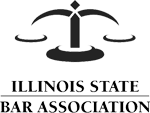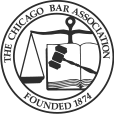
When it comes to the safety and health of nursing home residents, a clean and sanitary facility is critical. Nursing home residents are often some of our most vulnerable friends, family and loved ones. They have weakened immune systems or other health conditions that require the specific skill care and safe environments we come to expect from nursing homes.
When nursing homes fail to maintain a clean and sanitary environment, residents are at a serious risk for infections and other diseases that will lead to illness and even death.
That's why nursing homes are responsible for maintaining clean bathrooms, kitchens, resident rooms, tables, countertops, railings, door handles and medical equipment.
What types of infections pose a risk to nursing home residents?
There are several types of dangerous pathogens that can live on surfaces, in the air, in food and water, and even on a nursing home’s staff members and visitors. Many of these pathogens easily spread from person to person. They can result in serious infections and illnesses of a resident or—even worse—an outbreak through the entire facility. Nursing home residents are at risk of:
- Bacterial infections — bacterial pneumonia, urinary tract infections, Methicillin-resistant Staphylococcus aureus, streptococcus, e. coli, and Legionnaires Disease.
- Viruses — influenza, coronavirus, serious respiratory infections, and norovirus.
- Parasites — scabies, Giardia infection, Chagas disease, and tapeworm.
- Fungi — ringworm and candida.
Preventing infections
Beyond these dangers, a nursing home also poses a risk to its residents when its infection-prevention protocols fail or are inadequate from the start. An infection of one resident can create an unsanitary condition for the rest of the facility. A hospital dealing with infectious diseases takes precautions to be sure that the disease does not spread among the patients. A nursing home must also be sure that infections do not spread. Nursing homes need to take care and utilize adequate training, education, and infection-prevention measures when performing wound care, dealing with catheters, toileting, and other common assistance that many residents need.
Infection controls and prevention are so important to nursing home residents. That's why the federal government has dedicated an entire section of the legal code to it. 42 CSR 483.80 addresses infection control measures that nursing facilities must adopt at a minimum. Under this law, the facility must develop policies and programs to prevent or reduce the likelihood of infections and communicable diseases plaguing a facility. The facility must also have a trained infection preventionist available to reduce and manage infections. When facilities fail to follow these laws, which set the basic minimum requirements, they risk infecting their residents.
How unsanitary nursing homes can endanger residents
Health and cleanliness are connected. So are illness and unsanitary conditions. Nursing home staff and management are responsible for protecting the health of residents by maintaining a sanitary facility. Yet they often fail. These failures can lead to life-changing illness, infection and other harms.
Staffing, training and management can be key indicators of whether a nursing home will be able to maintain a clean and safe environment for its residents, or whether unsanitary conditions will plague the residents.
Key indicators
- Limited staffing: Low pay and high turnover rates can lead to staffing problems. When nursing homes are understaffed, there are simply fewer people to maintain a clean and safe environment. Existing staff members are often overwhelmed with a slew of tasks. So, they tend to put less time into cleaning and ensuring that food and water are safe. Instead, they're pulled away to other responsibilities and sanitation becomes a lower and lower priority for the facility.
- Poor training of staff members: Training is critical, so much so that the CDC offers a specifically designed Nursing Home Infection Preventionist Training Course that addresses communicable diseases and sanitation requirements. Nevertheless, some staff members are hired with little experience. Many nursing homes fail to provide staff with adequate training in resident care and safety. Without adequate training, the staff is unequipped to maintain a safe, sanitary and infection-free environment.
- Poor facility management: Nursing homes will often hire other companies to help manage the facility. These companies, in coordination with the nursing home’s own staff, are often responsible for ensuring sanitary conditions that do not become breeding grounds for bacteria and viruses. In many cases, poor facility management leads to unsanitary and dangerous conditions.
The Illinois Nursing Home Care Act
The nursing home abuse attorneys at Keating Law Offices are well-versed in the laws that reflect the need for basic humane conditions of a safe and sanitary environment that every nursing home resident deserves. The Illinois Nursing Home Care Act is one such law, and under this law the Illinois Department of Public Health establishes minimum standards for “sanitary conditions within the facility and its surroundings, including water supply, sewage disposal, food handling, and general hygiene, which shall ensure the health and comfort of residents,” per 210 ILCS 45/3-202
Each nursing home must provide basic and adequate medical and personal care that is necessary to avoid physical harm and illnesses, including infections, per 210 ILCS 45/1-117.
Each facility must also be equipped with infection prevention protocols and policies to help alleviate life-threatening and fatal illnesses, per 210 ILCS 45/2-213(d).
In short, a nursing home resident who falls ill from an infection or unsanitary condition might have a legal claim against the nursing facility for violating a specific statute designed to protect people living in nursing homes.
What do federal laws mandate?
State law is only the beginning. Nursing homes regulated by the federal government must meet additional basic standards for cleanliness and sanitation and infection. In fact, a resident has a right under this federal law to a clean and sanitary environment as codified at 42 CFR 483.10. This statute mandates that all residents are entitled to “housekeeping and maintenance services necessary to maintain a sanitary […] interior” at the facility.
Moreover, 42 CFR 483.60 requires a nursing facility to have a policy that ensures safe and sanitary storage, handling and consumption of food.
CFR 483.90 requires nursing facilities to provide a “safe, functional, sanitary, and comfortable environment for the residents, staff and the public.” Because every situation is different, it’s wise to consult with an attorney who knows the law in order to see if any violation may have occurred.
Chicago attorneys serving nursing home neglect victims
When poor sanitation and infection protocols in a nursing home resulted in your loved one becoming seriously ill, you may be able to file a nursing home neglect claim. You should consider bringing legal action against the parties who caused the illness. It's best to first consult with an experienced attorney who knows how to investigate nursing home neglect. You need a lawyer who can build a strong case against the people and companies responsible for caring for our country’s vulnerable residents in nursing homes.
Keating Law Offices can help by providing a free and confidential case evaluation today. The dedicated attorneys at Keating Law Offices help residents and their families affected by serious illnesses and injuries every day. We work tirelessly to help you pursue justice and get the compensation you deserve.
Contact us online or call (312)-239-6787 to find out how we can help you. Our legal consultations are free and confidential.







